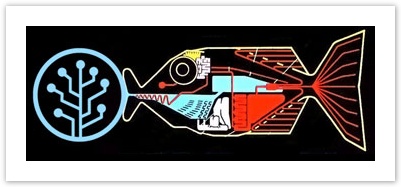Help translate SourceTree for Windows!
By Steve on December 9, 2013
Wouldn’t it be great if you could use SourceTree for Windows in your own language? We have a couple of translations in SourceTree for Mac (Japanese and French), but so far for Windows we’ve only supported English. Today, we’re asking you to help us fix that.
Translate SourceTree for Windows to your Language
We don’t speak anywhere near as many languages as we’d like to, and the Babel Fish sadly remains a fictional creature, so we need the help of native language speakers to make this happen. You can contribute your translations to the SourceTree for Windows Translation Project – signing up is easy, and you can get started in no time.
We’ve added a selection of languages we’d like to support initially, but we may add more later depending on demand;
- Chinese
- French
- German
- Japanese
- Portuguese
- Russian
- Spanish
- Spanish (Latin)
If you’re a speaker of one of those languages, please sign up with Transifex, click a language, and start translating! You can also vote on existing translated strings if someone else got there first.
There are two sets of strings for SourceTree for Windows: ‘Labels’ which (unsurprisingly) are mostly about labels in screens, and ‘Messages’ which are mostly longer messages displayed in dialogs. When you’re translating, if you see placeholders like {0} and {1}, these are variable pieces of text such as file names or branch names which are added at run-time, so please make sure you add those placeholders in to your translation too.
Thanks for helping us get SourceTree translated into your language. Look for the i18n release during the first part of 2014 to help bring in the new year!


17 Comments
Please add Italian localization and I’ll jump right in!
Can we get back to you? We just want to see how crazy this gets & how we handle the current list first 🙂 You can request new languages inside the linked Transifex project to put your stake in the ground 🙂 Hopefully the process will go fairly smoothly over the next couple of weeks and we can scale it up to more languages in the near future.
Sure, I am going through the same process (on crowdin.net), so I completelly understand 🙂
100+ German labels translated! Will make sure to get back to it later this evening! 😀
Thanks Lukas!
You’re welcome, though I have a question:
In German (and other languages) there are different forms when addressing people. If it’s someone distant/unknown one references them in the polite form, but if it’s someone close or one wants to get on a more “personal” level, one uses the “personal form” (you might want to read more on that, given that I’m no linguist). So what would you suggest to use?
Which do you normally see in applications? I’m familiar with the concept from doing languages at school but I’ve no idea how this pans out to software generally, I guess we should use whichever is the most common. I’d imagine that would be the non-personal?
It really depends on the software and what the target audience is, so I think for SourceTree the polite form should work well. I’ve also asked two programmer friends of mine and they agreed. 😉
Sounds good, thanks for caring about stuff like this, it really helps 🙂
Spanish / Spanish (Latin)?
That should probably be Spanish (Spain) / Spanish (Latin America)
Also, you could have just one initially.
Spanish will just be the common base, with Spanish (Latin America) there for local variants. We had a lot of people asking for that in other translation efforts.
I’ll contribute two locales if Atlassian ports it to Linux.
Can you split Chinese into Simplified Chinese and Tranditional Chinese ?
They are similar but still different. I can help adjust.
So right now we have Chinese (China) which is zh-CN, equivalent to Simplified Chinese. I’m guessing you would like to add zh-hant then? If so please request it in the Transifex interface – we have a queue of requested languages which we’ll review and add to periodically.
I would like to help, but my request for Polish language is awaiting for over two weeks. Is project coordinator still active?
Sorry, we have a bit of a queue and we’re trying to scale it up gradually – I’ve approved the Polish translation so you should have access now.
is it possible to add untranslated language to SourceTree? I added 100+ phrases for Czech language 😉
2 Trackbacks
[…] *本ブログは Atlassian SourceTree Blog の翻訳です。本文中の日時などは投稿当時のものですのでご了承ください。 *原文 : 2013 年 12 月 9 日 “Help translate SourceTree for Windows!“ […]
[…] Help translate SourceTree for Windows! […]